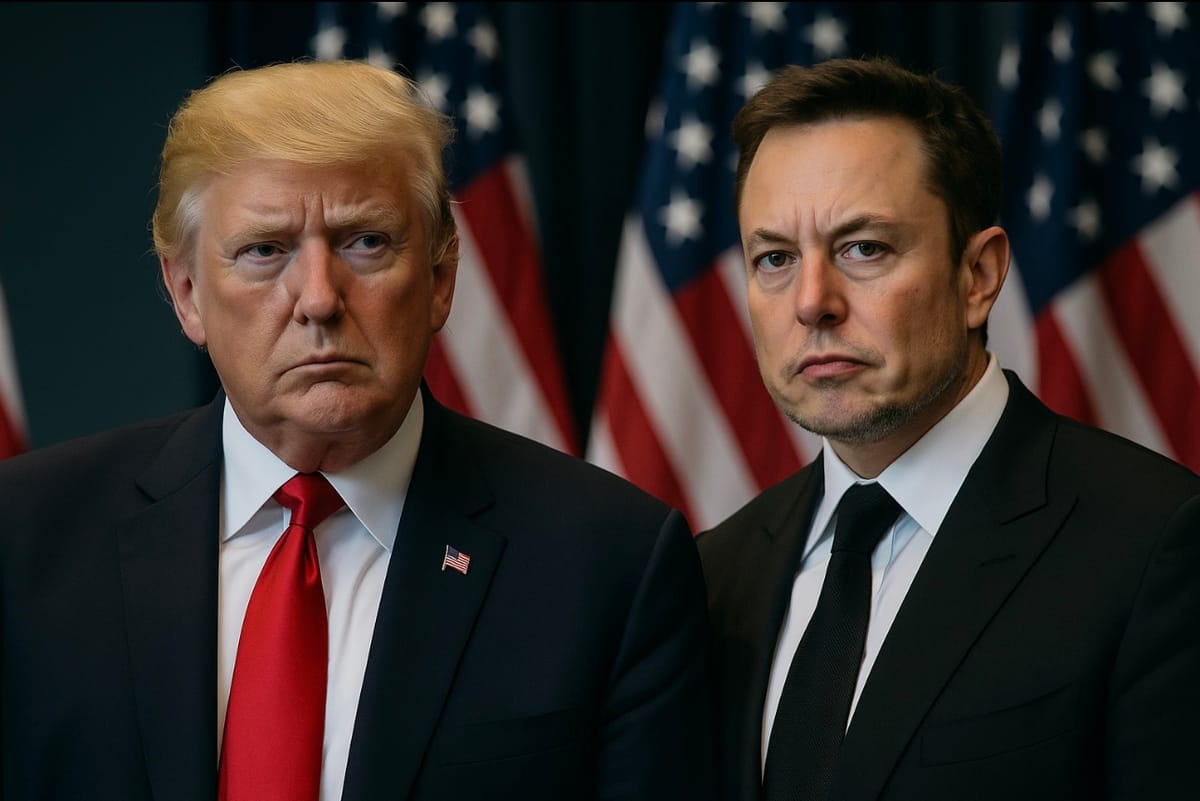Trump vs Elon Musk Feud Shakes US Markets and Politics
The conflict between Donald Trump and Elon Musk over a tax bill triggers market turmoil and deepens economic and political uncertainty in the US.

Tensions between former US President Donald Trump and Tesla and SpaceX CEO Elon Musk peaked in early June 2025. The conflict began with Musk’s open criticism of Trump’s favored tax bill, the “One Big Beautiful Bill Act.” Musk argued the bill could widen the US budget deficit by $2.4 trillion over ten years and threaten tax incentives for electric vehicles—vital to Tesla’s future.
From Allies to Rivals
Trump and Musk were once close allies in politics and business. Musk even headed the Department of Government Efficiency (DOGE) under Trump’s administration and contributed hundreds of millions of dollars to Trump’s 2024 presidential campaign. However, the relationship soured after Musk stepped down from DOGE and began publicly criticizing Trump’s fiscal policy on social media.
Musk called Trump’s bill “a disgusting abomination,” especially because the removal of electric vehicle incentives threatened the future of green technology and the American auto industry. Musk’s harsh critique sparked a fierce response from Trump.
Trump Strikes Back, Subsidy Threats Emerge
In retaliation, Donald Trump threatened to revoke all government contracts and subsidies for Musk’s companies, including Tesla and SpaceX. Trump claimed this move would save “billions of dollars” in federal spending. Trump’s threat sent shockwaves through financial markets.
Tesla shares plunged by 14% in a single day, erasing $150 billion in market capitalization. Elon Musk’s personal fortune dropped sharply, losing $34 billion in hours. This marked one of the largest single-day drops in Bloomberg Billionaires Index history.
Political Fallout and Public Reaction
The conflict split the Republican party. Most of Trump’s loyalists fully supported the bill and Trump’s threat against Musk. However, some conservative lawmakers—such as Rand Paul and Thomas Massie—expressed concern about the rising deficit and sympathized with Musk.
Meanwhile, Musk’s political influence appears to be fading, with many in Congress ignoring his calls to reject the bill. The debate spilled over onto social media, where Musk accused Trump of suffering from “Trump Derangement Syndrome” and even called for his impeachment.
Risks for US Space Programs
The Trump-Musk feud also raised concerns over the future of America’s space programs. SpaceX is currently NASA’s primary crew transport provider. Musk openly threatened to pull SpaceX’s Dragon capsules from NASA’s program if government contracts are terminated, creating further uncertainty around US space projects.
Future Uncertainty
This high-profile feud not only rattled the stock market but also injected enormous uncertainty into US economic, energy, and space policy. Trump’s tax bill is still winding through Congress, with the fate of EV incentives and space subsidies hanging in the balance.
Analysts warn that if the conflict continues, the effects could extend beyond the automotive and space sectors, deepening America’s political polarization and impacting the global economy.





Comments ()